Languages

Wednesday, December 26, 2012
Journalism and Communication for Global Change
GENEVA
Multilateralism is at a Crossroads
Multilateralism is at a crossroads. This is a crucial matter for environmental and sustainability issues, as we have seen in the Rio+20 Summit, and for trade and other economic matters. The G20 Summit in Los Cabos, Mexico, focused precisely on improving our collective response to the current economic turbulence, which is at the heart of developments in the European Union (EU) as well.THE FUTURE OF THE WORLD TRADING SYSTEM
The relative dynamism of emerging economies over the past several years has meant that these countries, many of them in Asia, have come to play an ever-growing role in the world and to account for a larger share of economic activity. Adjusting politically and organisationally to shifts in economic power takes time. As we work towards a new equilibrium in international cooperation, new relationships and leadership patterns will inevitably emerge, just as they have throughout history.THE FUTURE OF THE WORLD TRADING SYSTEM
The relative dynamism of emerging economies over the past several years has meant that these countries, many of them in Asia, have come to play an ever-growing role in the world and to account for a larger share of economic activity. Adjusting politically and organisationally to shifts in economic power takes time. As we work towards a new equilibrium in international cooperation, new relationships and leadership patterns will inevitably emerge, just as they have throughout history.THE MAIN PROBLEM WITH GLOBALISATION IS TOO LITTLE GOVERNANCE
Globalisation dominates our era, but it is an increasingly fragile dominance. Even as global integration delivers enormous benefits -growing wealth, spreading technology, the rise of billions of people in the developing world- it also creates new risks -financial instability, economic imbalances, environmental stresses, growing inequalities, cyber penetration- that we seem to have difficulty managing.AFRICA: CORRECTING HISTORICAL INJUSTICES IN THE WORLD TRADE RULEBOOK
Why did Africa move from being a net exporter to a net importer of food in the 1980s when the prices of its key commodity exports tumbled and its agriculture slowed down? Its food trade deficit is now around USD 20 billion and, given the current rise in prices, could get much worse.THE GORDIAN KNOT OF THE FOOD CRISIS
Barely out of the 2008 food price crisis, the world appears to have entered yet another phase of higher prices. Rising food prices are now stoking global inflation, not to mention political unrest of proportions that we could have seldom imagined.THE GOOD SIDE OF GLOBALISATION
Is globalisation, which is shaping our societies whether we like it or not, a threat to identity? If we were to believe all that we hear, the winds of globalisation are wreaking havoc everywhere, uprooting identities and cultures which for centuries have been shaping human relations, sweeping away all local values and customs, writes Pascal Lamy, Director-General of the World Trade Organisation (WTO).THE GOOD SIDE OF GLOBALISATION
Is globalisation, which is shaping our societies whether we like it or not, a threat to identity? If we were to believe all that we hear, the winds of globalisation are wreaking havoc everywhere, uprooting identities and cultures which for centuries have been shaping human relations, sweeping away all local values and customs.THE CHANGING PATTERNS OF WORLD TRADE
The global trade landscape has changed profoundly in the past decade Âmore profoundly, I suspect, than we fully understand. These changes are being driven partly by market opening, but mainly by transport, communications and information technologies. It now costs less to ship a container from Marseille to Shanghai Âhalf way around the world than to move it from Marseille to Avignon Â100 kilometres away. Multinationals routinely organize their activity around three “shifts” corresponding to the three main times zones ÂEurope, North America and Asia and deliver on-line services, data inputting, software writing, help-lines Âfrom practically anywhere in the world.AN URBAN LEGEND ABOUT INTERNATIONAL TRADE
Economists have long analysed trade, why nations need it to prosper, and what governments do to reap the gains while managing the costs. But if the economics of trade policy are clear, the politics of trade are highly complex. Trade policy, like so many other areas of policy, has ramifications on how resources are distributed, and this inevitably creates competing interest groups within society.TRADE GOES HAND IN HAND WITH HUMAN RIGHTS.
The history of the relationship between trade and human rights is a history of suspicion, and to some extent of deliberate reciprocal ignorance. Yet, trade goes hand in hand with human rights. Trade presupposes human interaction, respect and understanding. If conducted with respect, "trade polishes and softens the most barbarous mores", to quote Montesquieu and his theory of "sweet trade".YEAR ENDER – NOT YET OUT OF THE WOODS
In February of this year, the global economic downturn was peaking. The collapse of industrial output and exports was approaching a 40 percent year-on-year on average. Trade was shrinking dramatically. The outlook was indeed gloomy.LOW-INTENSITY PROTECTIONISM, SO FAR
World economic growth, as measured by the world's production of goods and services, has slowed abruptly in 2008 and the early part of this year. The contraction in demand led to a slowdown in production, and in international trade. World merchandise trade is projected to fall by a full 10 per cent this year, and foreign direct investment, which fell by 15 per cent in 2008, is projected to drop further.A MIXED PICTURE OF THE GLOBAL CRISIS
The world economy remains fragile and the economic outlook is still uncertain. There have been a few encouraging signs recently of better-than-expected performance here and there. Some are interpreting this as an indication that we may be turning the corner with regard to a possible return to previous patterns of economic growth, but excessive optimism is unwarranted.WHY FREE TRADE IS THE BEST ROUTE TO FEEDING THE WORLD HUNGRY
While the world could probably agree on basic objectives for our agricultural systems -adequate, nutritious, and affordable food, decent pay for farmers, and culturally and environmentally-sensitive production - we still disagree on what global integration could bring to this process.Next Page »








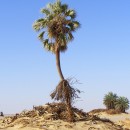
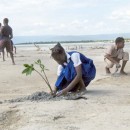


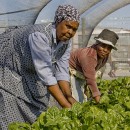
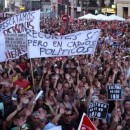




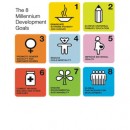

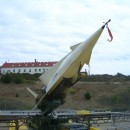


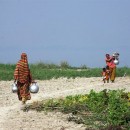



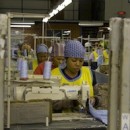
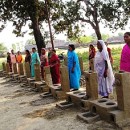
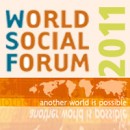
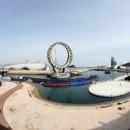






IPS on Facebook